80% of the Singaporean population needs help coping with stress.
While this statistic may be surprising to some, it appears to be the norm for the majority. Sure, considerable efforts have been made to destigmatise mental health and help-seeking behaviours in recent years, but stress and anxiety continue to be a challenge for the nation.
This begs the question: Is mental healthcare in Singapore headed in the right direction?
We addressed this at Intellect’s Mental Health Festival alongside prominent figures in the healthcare system: Dr Daniel Fung, Associate Professor and CEO of Institute of Mental Health (IMH) and Yong Yih Ming, CEO of Mount Elizabeth Hospital.
Watch the session titled CEO Perspectives: Collaborative Pathways of Public and Private Healthcare for Universal Access:
Trends in mental healthcare in Singapore
1. Mass-customised solutions
According to the latest results of the Point Prevalence survey, 1 in 7 Singaporean individuals has a lifetime risk of developing a mental illness. Although dealing with mental health is still highly stigmatised, Associate Professor Daniel Fung emphasised that the significant difference in today’s age is the ability to implement customised solutions at scale.
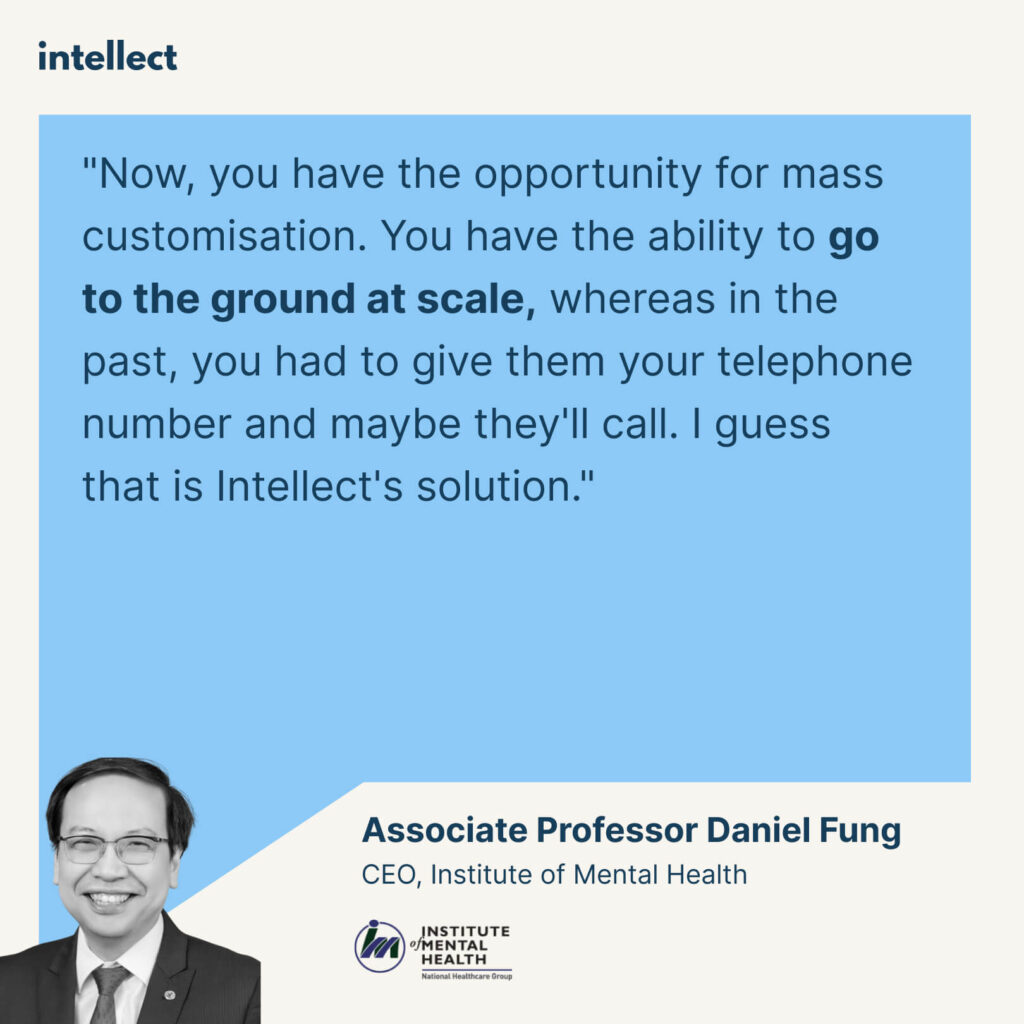
Customised solutions involve identifying problems on the ground, finding viable solutions for these issues, and eventually scaling them further while considering real-time patient feedback—a formula Intellect is no stranger to.
By making mental health assistance more convenient and accessible, patients on a large scale can access a wide range of knowledge at their own pace while addressing their personal needs. Yih Ming shared how Mount Elizabeth Hospital, a portfolio company under IHH Healthcare, leverages Intellect to effectively reach its patients:
“From a cultural stigma perspective, Intellect provides confidentiality and direct access from your own personal point of view without stepping into a physical facility,” he explained.
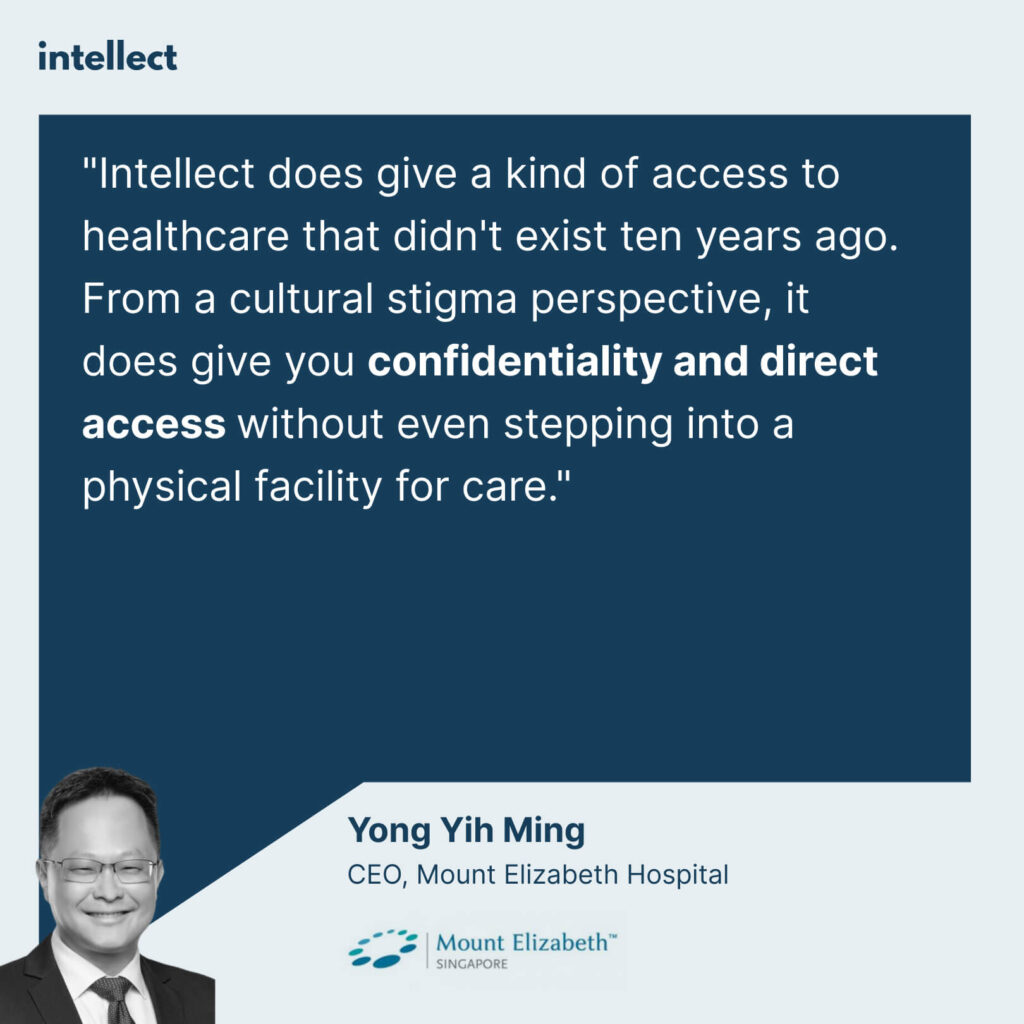
2. Collective responsibility
Gone are the days when the burden and responsibility of self-care were solely placed on the individual. While the responsibility for mental health still primarily lies with the individual, there are instances where a person may lack the capacity for self-awareness. In such situations, a supportive community equipped with mental health literacy can be invaluable.
Intellect’s Mental Health First Aid™ (MHFA) course aims to strengthen ecosystems by empowering individuals to identify, assess, and manage symptoms of mental health distress in their peers.
Yih Ming shared that in the case of IHH Healthcare, the first class of trainees are none other than its healthcare staff:
“If we equip our employees with the skillset to recognise colleagues at risk and if access to healthcare is more prevalent, then hopefully, that effect becomes the culture and caring for the patient becomes part of this whole equation. We want to believe that if we do this properly, the equation will be balanced.”
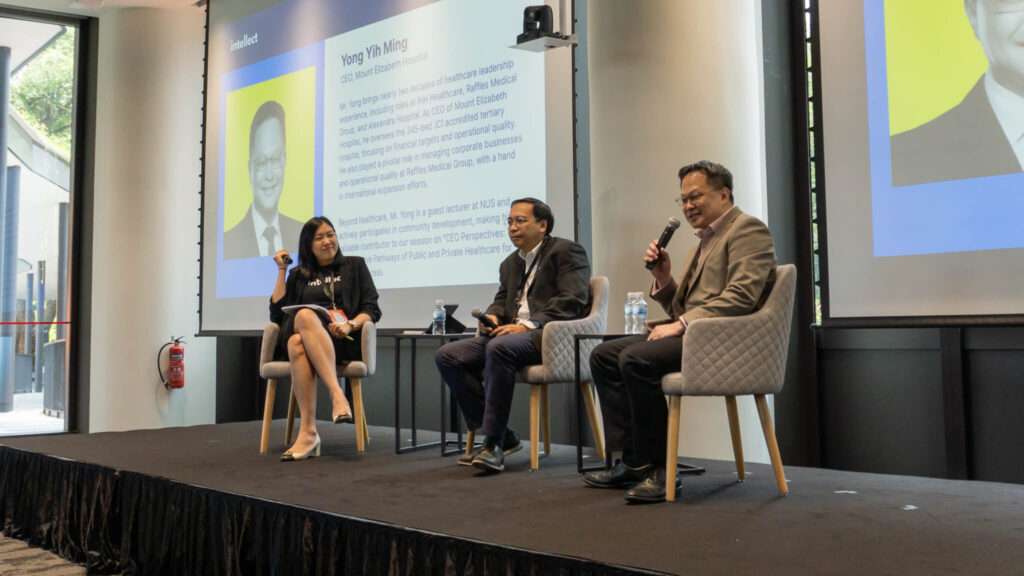
The program comprises a day of e-learning and another of on-site learning, and is facilitated by instructors who have undergone rigorous training and are accredited by MHFA International. Learn more about how Mental Health First Aid™ can be an organisation’s first line of defence here.
3. Mental health screenings
Another progressive step is taking a preemptive approach to mental healthcare by introducing mental health screenings.
A prime example is Intellect Dimensions, which allows employers to measure their employees’ wellbeing and tailor their strategies for workplace mental health accordingly. For instance, a workforce that is lacking in “emotional regulation” may benefit from a webinar by a Cognitive Behavioral Therapist. Another group that reports low scores in “work-life balance” may wish to review their policies.
In 2023, we also launched two Intellect clinics, one in Tanjong Pagar and Parkway MediCentre at The Woodleigh Mall. These clinics are staffed with qualified clinical psychologists who can provide a range of diagnostic assessments. Following a diagnosis, patients can access counselling and psychotherapy services while being supported by their clinicians throughout the journey.
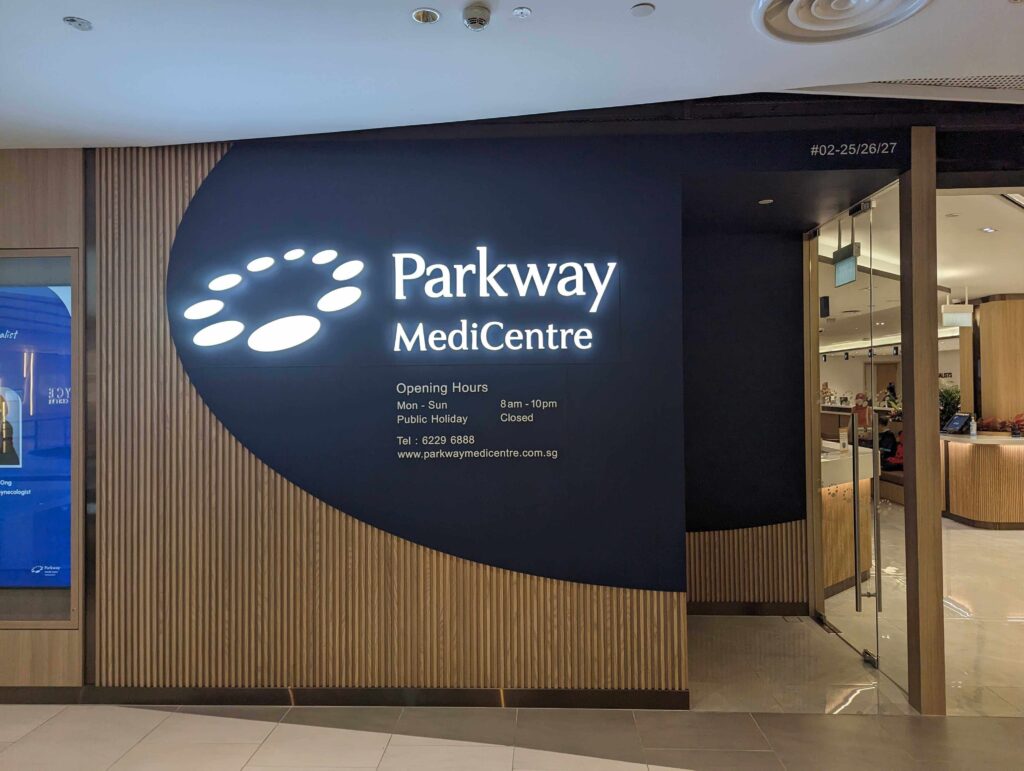
4. Integration of physical and mental health
Dr. Fung also emphasised the need to address illness holistically, integrating both physical and mental health in each patient’s journey. 30% of patients with mental illness develop the most common disorders such as diabetes and hypertension. This underscores the interdependence of these two health pillars, emphasising that they should not be viewed separately.
The responsibility for national wellbeing therefore does not rest solely on mental healthcare professionals. Mental health symptoms may warrant more attention from doctors, physicians, and surgeons at the primary care level as they could very well be related to physical ailments.
Gleneagles Hospital, for example, considers both the physical and mental health of new mothers under their care. Pregnancy and childbirth can be a stressful experience, and care shouldn’t end with the OBGYN delivering their baby safely. By granting new mothers access to Intellect, they can reach out to a coach, counsellor, or psychotherapist from the comfort of their beds while in recovery.
The future of mental healthcare in Singapore
Whether it’s a public or private health institution, both Dr. Fung and Yi Ming agree on one common goal for mental healthcare: making Singapore healthier and happier. There are various opportunities for improvement at the tertiary level, such as working together with primary doctors, hiring more psychiatrists, and ensuring an adequate supply of medical equipment. Once these aspects are strengthened, it will be easier to detect mental health issues early and prevent them.
Not even a week after their session at the Mental Health Festival 2023, Singapore announced its national mental health and well-being strategy, affirming almost all of the points made by both experts. The new care model comprises four tiers of mental health services that correspond to the severity of an individual’s needs, available in health, social, and education settings.
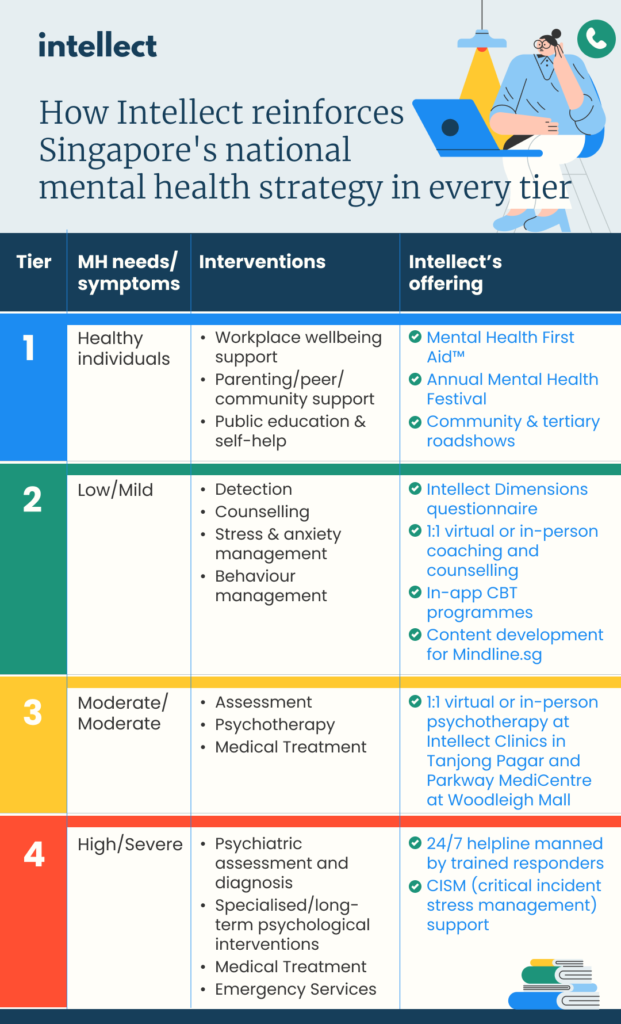
Learn more about how Intellect reinforces this in every tier here.








